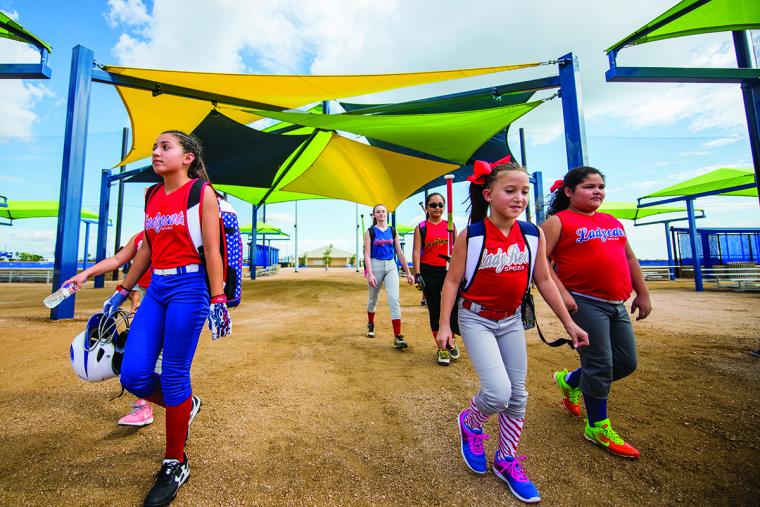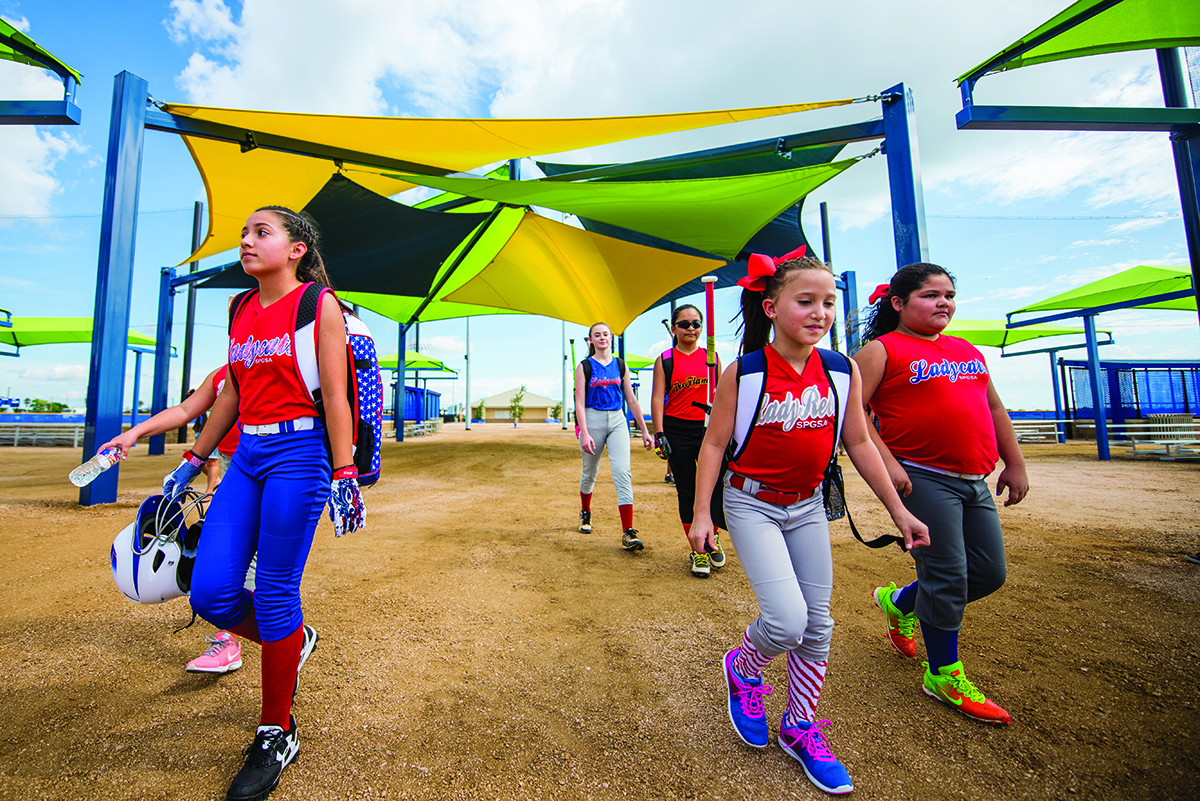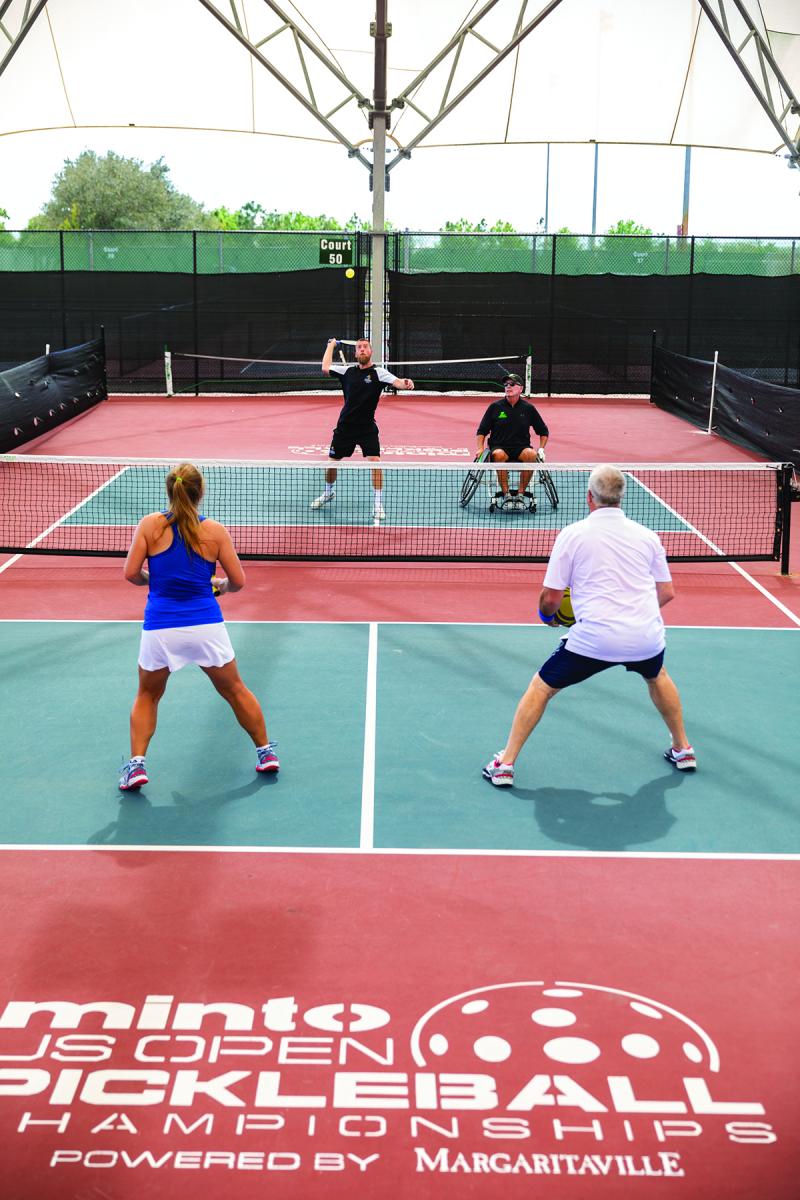

Technology is great but don’t always let it take the high ground. Whether you’re a newcomer to the industry, whether you’re building an event from scratch or whether you’re an industry veteran or whether you’re a destination seeking to generate a larger economic impact, the goal is always the same: a successful event. Here are a few essential resources and strategies for successfully attracting and managing athletes at your next sporting event.
Winning and Having a Positive Economic Impact
David Stephens has more than two decades of knowledge, expertise and understanding of what it takes to help athletes get the best results. As the event owner of Prime Time Sportz and Big Foot Hoops, both of which operate in the grassroots, amateur youth basketball space, he knows a thing or two about getting athletes to return to his events through struggles, successes, finding the right resources and the value of leveraging partnerships.
Event planning is a multifaceted process and creating and maintaining positive relationships means working on multiple fronts to stay current – and to create a positive forward momentum.
What Keeps You Coming Back to a City?
Stephens says he goes back to where he had success. It’s as simple as that for his operation. Grassroots basketball is everywhere and isn’t any type of specialty sport. He says, “If the events are decent and project growth, then I’m going back.”
Maybe you’re putting on a specialty sporting event such as fishing tournament or any sport that requires a body of water or maybe you’re doing something that requires playing outside. Then, of course, you would have to do them during certain months and look for specific locales and it could play into why you chose certain cities and sites. And if the community has an excellent record of welcoming guests to its events, you have one more reason to return.
Communication is Key
Communication, at all times of the year (not just in the frantic run-up to your event), is critical to maintaining a successful relationship. A regularly scheduled call to touch base, or an e-mail asking relevant questions, can go a long way toward a good relationship between cities and event owners – so why not extend that to your athletes as well?
A regular e-newsletter or e-mail blast to your registered athletes, or to those who have participated in past events, or to those you hope to recruit, is a great way to keep in touch. Let them know what’s going on. Has a contract been signed? What venues will be used? Have there been any changes to the schedule? It’s all important.
Listen to Athletes’ Suggestions – That’s Your Bottom Line Talking
Maybe your athletes complained last year about not having enough portable toilets. Maybe they didn’t like the fact that they had to walk a long time to get between the parking area and the competition venue. Maybe they had other concerns. Are you listening to those? More importantly, are you letting them know you’re listening? And what are you going to tell them you are going to do about it?
If evaluations that are conducted after each event (and they should be conducted after each event) lead to specific repeated comments, complaints or requests, listen up. Those are your athletes talking and if you don’t listen to them, they’ll go somewhere else. Want to make yourself even further available to them? Have a portal on your website or on your app where they can send questions – and make sure all questions are responded to quickly. Take the time to let athletes know that (a) you heard their complaints/comments/questions, and (b) that you’re working on answering them and making improvements. Then (this is key) list the steps you’re taking to address their complaints.
What does this tell your athletes? It tells them you value their input. They’re not just a registration fee or a number on a balance sheet. And if you let them know you think they’re the experts at judging how good an event was, they’ll keep coming back.
Provide Information on All Fronts
At your event, do you have an app? Signage? Volunteers answering questions? Athletes should be able to access information and answers quickly, without asking one another what to do. Anticipating their questions and smoothing their way are both key building blocks in any relationship. Don’t miss your chance to have them come into events feeling confident.
Remember, too, that athletes have access to social media 24/7. They’ll be churning out information on whether they’re happy and excited about competing – or whether they’re frustrated with a lack of direction and think the event is a dud before they even get to the start line. Their decisions and opinions, positive or negative, will be formed quickly. Which information would you rather have them broadcasting?
The World is More Complicated in 2020

What types of relationships do you have with local CVBs and sports commissions? They can contribute by steering event owners to room blocks with family room rates and to venues and other facilities that are charging competitive rates. You can also rely on them to enhance the experiential component from unique staffing to providing information on discount dining opportunities, passes to theme parks, waterparks, museums and other attractions.
Think in terms of sights, sounds, tastes, flavors and culture. You already know the athletes need something to do besides playing their respective sports. What are you offering that’s unique and fun? Ask the destination for help; after all, they know best. Offer opportunities for a wide range of diversions for parents and coaches and siblings and friends who often travel with the athletes.
Stephens has learned that finding a local partner to help facilitate this component is “always better than a cold call from me.” And, he notes, an experience beyond a basketball game is impactful and will drive retention. Local partners who are assisting in satisfying wants, needs and wishes can shift attitudes and connectivity in a positive manner.
Key Takeaway: If you think of the athletes as the real heroes, additional leverage could come from augmented exposure via amplified media, athlete celebrations, event-related social events and demonstrations of the sport with athletes showcasing their talents and inspiring future generations and teaching about the sport.
Issues and Challenges
If the athletes feel apprehensive regarding the conditions of the event (e.g. facilities and accommodations), they may be unenthusiastic, uncomfortable and perhaps even perform below their capabilities. Safety is now even more of an issue in the world that we live in today. Event and rights owners, tournament directors, athletes, workers, guests and spectators all need to perceive the destination to be a safe place. The outbreak of COVID-19 and the efforts to prevent its spread are evidence of the axiom that what worked one year won’t necessarily work the next – if it’s even possible at all.
In the final analysis, you can hope that your event goes off without a hitch, but the bottom line is this: no event does. You’ll need to stay nimble and agile, and to respond to any challenge that comes your way. Your athletes need to see you making decisions and looking confident about them. They’ll follow your cue.
Create the relationship, sustain it with good communication and always be ready to lead. The loyalty you create today will bring back your athletes in years to come. SDM

